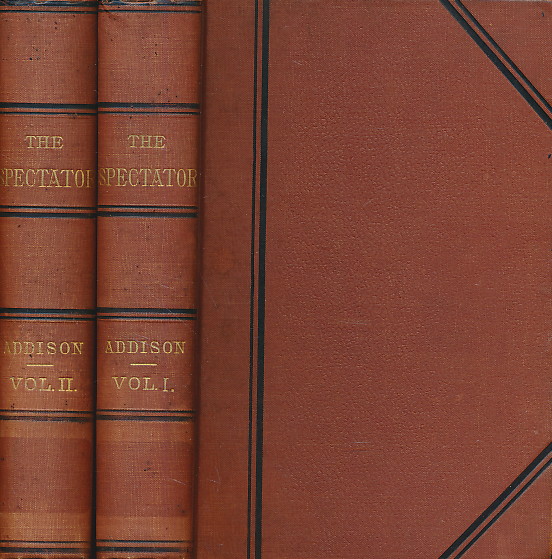The Spectator I-II
€20,00
Nema na zalihi
| Težina | 1503 g |
|---|---|
| Format | 14 × 20 cm |
| Autor | |
| Izdavač | |
| Mjesto izdanja | Philadelphia |
| Godina | 1875 |
| Broj stranica | 1167 |
| Uvez | Tvrdi |
| Stanje knjige | Vrlo dobro |
The Spectator was a daily publication founded by Joseph Addison and Richard Steele in England, lasting from 1711 to 1712. Each paper, or number, was approximately 2,500 words long, and the original run consisted of 555 numbers, beginning on 1 March 1711. In Number 10, Mr. Spectator states that The Spectator will aim ‘to enliven morality with wit, and to temper wit with morality’. The journal reached an audience of thousands of people every day, because ‘the Spectators was something that every middle-class household with aspirations to looking like its members took literature seriously would want to have.’ He hopes it will be said he has ‘brought philosophy out of closets and libraries, schools, and colleges, to dwell in clubs and assemblies, at tea-tables and coffee–houses’. Women were a target audience for The Spectator, because one of the aims of the periodical was to increase the number of women who were of a more elevated life and conversation.’ Steele states in The Spectator, No. 10, ‘But there are none to whom this paper will be more useful than to the female world.’ He recommends that readers of the paper consider it ‘as a part of the tea-equipage’ and set aside time to read it each morning. The Spectator sought to provide readers with topics for well-reasoned discussion, and to equip them to carry on conversations and engage in social interactions in a polite manner. In keeping with the values of Enlightenment philosophies of their time, the authors of The Spectator promoted family, marriage, and courtesy. The Spectator also had many readers in the American colonies. In particular, James Madison read the paper avidly as a teenager. It is said to have had a big influence on his world view, lasting throughout his long life. Benjamin Franklin was also a reader, and the Spectator influenced his style in his ‘Silence Dogood’ letters. Jurgen Habermas sees The Spectator as instrumental in the formation of the public sphere in 18th century England. Although The Spectator declares itself to be politically neutral, it was widely recognised as promoting Whig values and interests.
